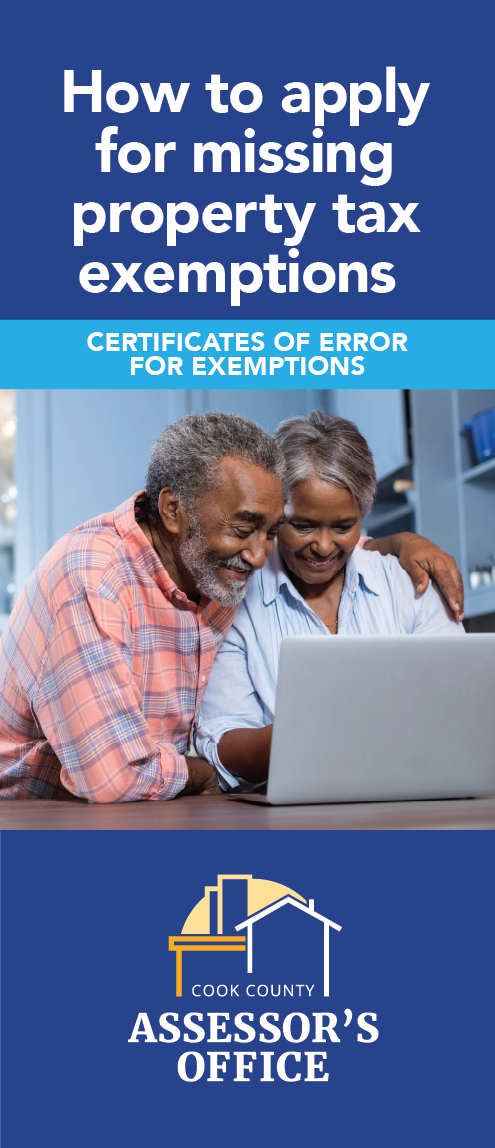This Homestead Exemption for Veterans with Disabilities is for veterans with a service-connected disability as certified by the U.S. Department of Veterans Affairs. The exemption reduces certain amounts of the Equalized Assessed Value (EAV) on the primary residence of a veteran with a disability, very likely lowering the tax bill. The amounts of those EAV deductions depend on the level of disability. Veterans 70% or more disabled receive an EAV reduction of $250,000, and because of this can be totally exempt from property taxes on their home.
The automatic renewal of this exemption due to the COVID-19 pandemic has ended. All applicants must reapply annually.
NEW: Per new legislation, Veterans who are rated 100% disabled and classified as "permanently and totally disabled" by the U.S. Department of Veterans Affairs will be automatically renewed each year.
Automatic Renewal: No, this exemption must be filed annually.
Due Date: The normal filing period has ended. Homeowners can now apply for a 2024 Certificate of Error.
Did you file online for your Veterans with Disabilities exemption?
Log in to view your application status.
How can a homeowner see which exemptions were applied to their home last year?
Check the Property Details, then review the Exemption History and Status section.
📌 Reminder: Exemptions appear on your second installment tax bill issued in the summer. To learn more about how the property tax system works, click here.


